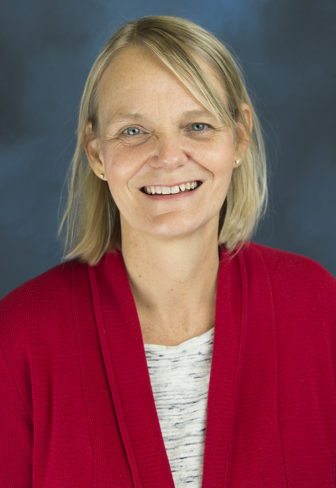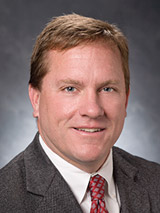
Jihan Nafiaa Zahri
.
Earlier this year we wrote a column in Youth Today about the barriers faced by college students who had experienced homelessness or foster care during high school. This column highlights some key findings from our research, which was supported by the Spencer Foundation, on the education, housing and life experiences of 33 students at 12 colleges across the state of Georgia.

Kimberly Skobba
We knew that students who have experienced homelessness and/or foster care face significant barriers getting to and staying in college and we wanted to understand what that looked like in the everyday lives of these students so that we could learn from them and work on potential solutions. In this column, we take a closer look at how the self-sufficiency skills developed by college students who have experienced homelessness or foster care may serve as a liability in navigating higher education.
Young adults with histories of foster care and/or homelessness experience are often required to take on adult responsibilities well before they reach adulthood. Youth who are homelessness, run away from home or transition out of foster care face early independence by definition and circumstance. Taking on adult traits and responsibilities at a young age, termed childhood adultification or early adultification, occurs when children assume adult roles, such as caregiving, premature self-sufficiency or part-time or full-time work to support the family before they are emotionally ready for adult roles.
It is a process that is linked to numerous factors, including economic hardship, divorce, and family dysfunction and conflict.
… what got us into to care which was her leaving us home by ourself. But because of her leaving us at home by ourself and all of that, I got a lot of different skills from it. – like how to cook because she wasn’t there to cook for us. Or how to wash clothes or how to wash dishes … how to do stuff. —Alyssa
I feel like ever since I was 12 years old, I would try to find money and take care of my sisters and my little brother. Just because my mom would never do what she was suppose to do. So, I feel like they are my kids but I don’t want to say that because I don’t need any children right now. I want to figure my life out first. —Sarah
I was really trying to make some money for my mom … I was washing cars in the neighborhood, I was trying to get a little money to help my mother out with whatever she had, the bills, rent or anything else. It was kind of stressful, because I wasn’t making a lot of money, and I felt I was letting my mom down. —Marcus
Amount of help differs in college
The early adulthood experiences of the students in our study stand in contrast to the experiences of the majority of their peers. Young adults in the U.S. often receive a substantial amount of material and social support from their families, with parents providing some form of material and time support until their children are in their late 20s or early 30s. For young adults who are homeless or leaving foster care, this support from parents is often not available. As a result, they experience a more compressed transition into adulthood and carry a broader range of responsibilities at an earlier age than their peers.

David Meyers
The students in our study possessed a high level of self-reliance skills, which served them well in the transition to college. These skills helped students navigate the college application and acceptance process. In high school, students often had adults who believed in them and who provided encouragement, guidance about the process, and material support for fees and college visits.
Once they arrived on campus, many of the students in our study continued to rely on self-sufficiency skills, often without the same type of adult support and mentorship that had helped them get into college. This “I can do it on my own” attitude was reflected in both their ability to take care of basic needs and navigate their education. Gabby, reflecting on what she had learned about herself while in college, talks about how she provides for her own basic needs and is reluctant to ask for help:
[I learned] that I like being independent because now that I’m in college, I don’t ask anybody for anything. Like, I basically do everything for myself … I don’t like asking for help. I don’t even think it’s more of being independent. I think it is that I have a lot of pride.
Samuel spoke of his reluctance to ask for help because he thought it changed how people would think of him:
And I’m that type person who doesn’t like asking folks for help because when you ask folks they look at you in a different way. I wouldn’t say the majority, but I would say certain folks would look at you.
This reluctance to seek help may serve as a barrier to academic success. Teachers and mentors in high school are often in a better position to identify students who may need additional guidance than are college instructors, who may have students for one semester and lack the ability to connect with other instructors across students’ program of study. Receiving support in college is largely dependent on the student taking initiative to talk with faculty members and other students, and to seek out services provided by the institution.
This ability to integrate and form an academic network of support through participation in study groups, meetings with academic advisors and connections with faculty members is linked to higher retention rates among first-year students. Most of the students in our study were receiving social support and some material support from a campus-based program designed for students who have experienced foster care and homelessness, which we discussed in greater detail in our first Youth Today column.
What is less clear is whether students are developing academic support networks that are crucial to academic success. Building a network of peers, faculty, administrators and mentors is intimidating for most students. For students who have survived on self-reliance skills since childhood, it is likely even more difficult. And it may be the single most important thing that will help a student succeed.
Research suggests that youth who have experienced homelessness or foster care continue to struggle to maintain financial and residential independence in adulthood. Accelerated adulthood is linked to difficulties in adulthood in gaining financial security, careers and relationships. Getting a college degree and developing a social and academic network may serve to mitigate some of the barriers faced by college students with a history of homelessness or foster care. While more colleges are implementing support programs for these students, more work is needed to generate awareness among faculty and administrators and to develop strategies that will help engage reluctant students and leverage their self-reliance for positive academic outcomes.
Kim Skobba is an associate professor in the housing management and policy program and the director of the Housing and Demographic Research Center at the University of Georgia. She teaches courses that focus on housing and community development and studies rural housing conditions and housing instability among low-income households.
David Meyers works on a variety of youth and family leadership initiatives with a primary focus of supporting youth in foster care and the families and institutions that serve them. He came to the University of Georgia to join the public service faculty at the JW Fanning Institute for Leadership Development in January 2010; he is also a part-time faculty member in the UGA School of Social Work.





























